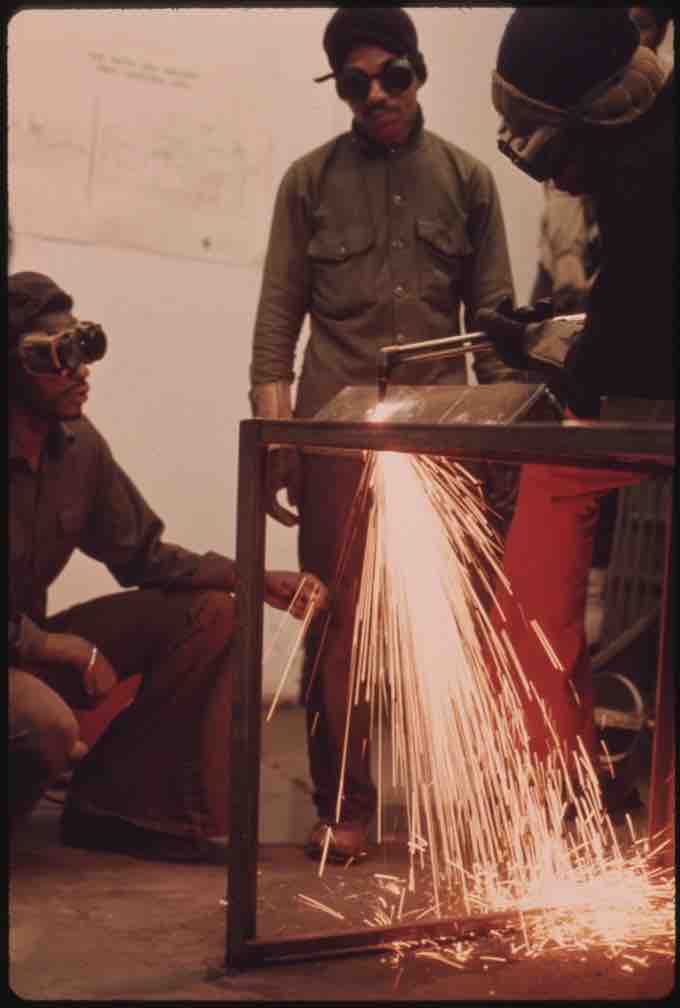Background
Weber listed several preconditions for the emergence of the bureaucracy: The growth in space and population being administered, the growth in complexity of the administrative tasks being carried out and the existence of a monetary economy – these resulted in a need for a more efficient administrative system. Development of communication and transportation technologies made more efficient administration possible (and popularly requested) and democratization and rationalization of culture resulted in demands that the new system treat everybody equally.
The growth of bureaucratization developed due to the rapid industrialization that United States was facing during the 19th century. As Weber understood, particularly during the industrial revolution of the late 19th century, society was being driven by the passage of rational ideas into culture that in turn transformed society into an increasingly bureaucratic entity.

Black Student Welders Work in a Machine Shop Course Taught at The Chicago Opportunities Industrialization Center
Black Student Welders Work in a machine shop course taught at the Chicago opportunities industrialization center at a former grade school in the heart of the Cabrini-Green Housing Project on Chicago's near north side.
The Growth of Bureaucratization
Bureaucracy is a type of organizational or institutional management that is, as Weber understood it, rooted in legal-rational authority. Bureaucracy is a complex means of managing life in social institutions that includes rules and regulations, patterns and procedures that both are designed to simplify the functioning of complex organizations. An example of bureaucracy would be the forms used to pay one's income taxes - they require specific information and procedures to fill them out. Included in that form, however, are countless rules and laws the dictate what can and can't be tied into one's taxes. Thus, bureaucracy simplifies the process of paying one's taxes by putting the process into a formulaic structure, but simultaneously complicates it by adding rules and regulations that govern the procedure. Weber did believe bureaucracy was the most rational form of institutional governance, but because Weber viewed rationalization as the driving force of society, he believed bureaucracy would increase until it ruled society. Society, for Weber, would become almost synonymous with bureaucracy.
Governing Bureaucratic Institutions
As society became more populated and industrialized, department and federal agencies develop to regulate the flow and integration of people of growing cities. For example, one well-known bureaucratic agency in which people deal with regularly is the Department of Motor Vehicles. This is the agency, which issues driver's licenses and registration. In some states, the function is handled by an actual Department of Motor Vehicles (or similar agency with a different name), while in other states it is handled by subdivisions of the state's transportation department. In Hawaii, this function is done at the county level. Some other agencies you may be familiar with include Fish & Game, Forestry, or Transportation.